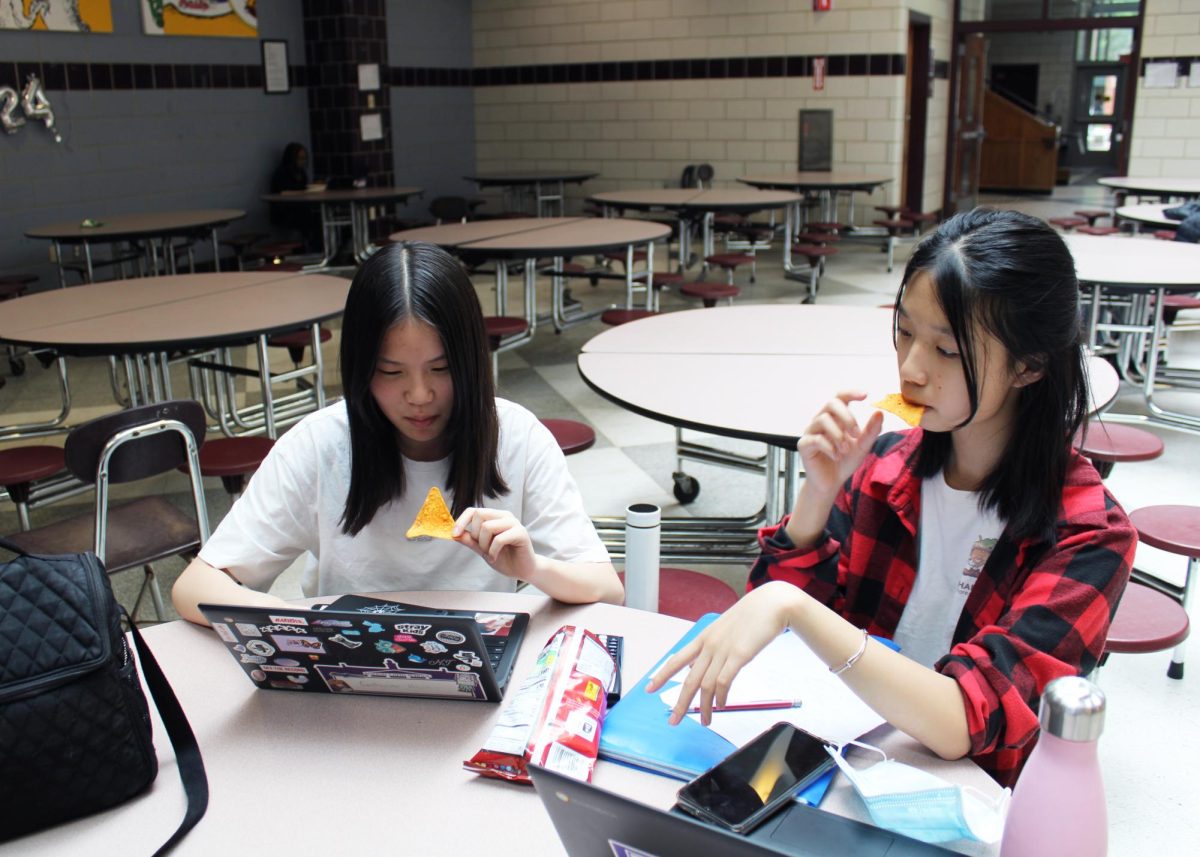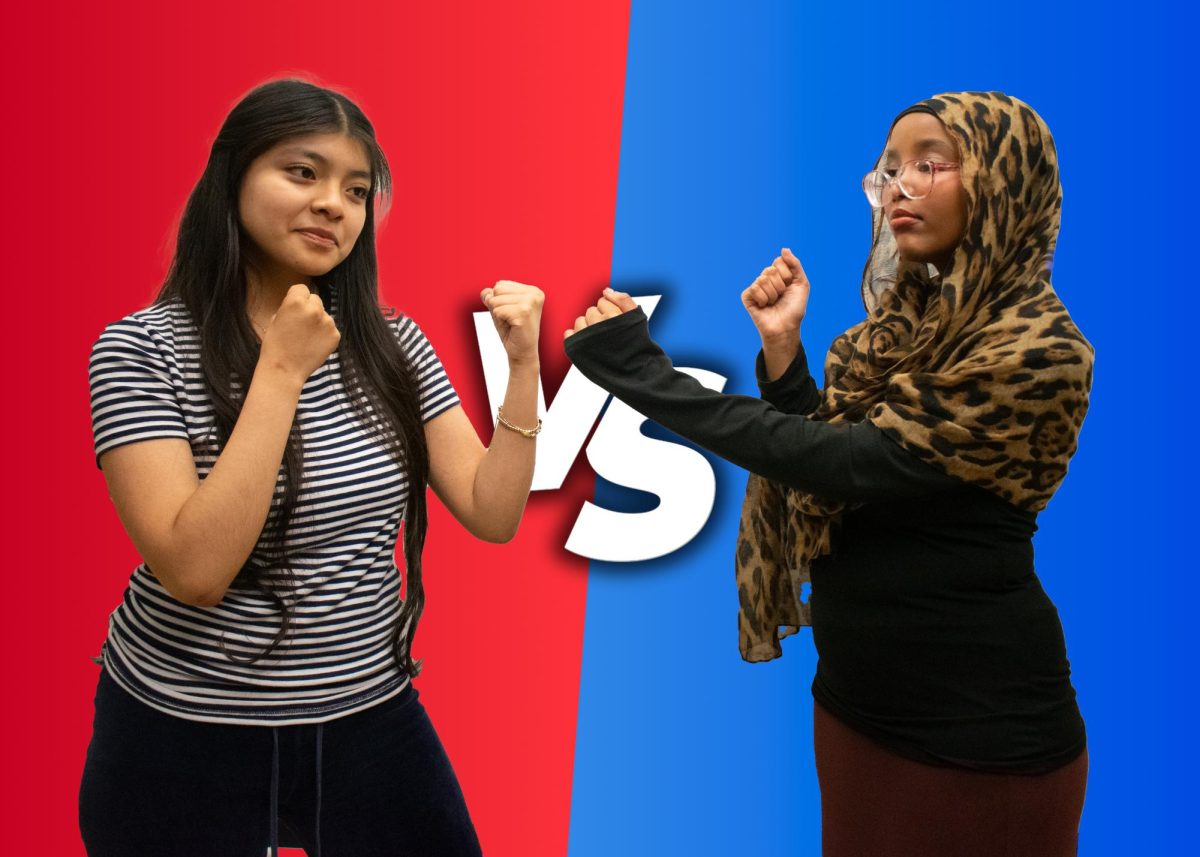Generation Z (Gen Z) is often described as “woke,” taking pride in their knowledge of current events, racial prejudice and discrimination. The “cancel culture” era between 2020 and 2022 is a perfect example of this, when influencers and celebrities were held accountable for their statements and actions more than ever before. During this time, many in Gen Z grew wary of being on the wrong side of topics such as body size, race, sexuality and politics to avoid being viewed as problematic. Others began expressing their annoyance, however, at those who took jokes too seriously. As more people become frustrated with “cancel culture,” there has been a rise in potentially offensive terms such as “big-backed” among the younger generation.
The phrase “big-backed” has become popular among Gen Z. The term first became famous through TikTok, where it was used as a joking phrase to describe those who eat a lot. As this trend made it to a darker side of TikTok, however, it is now often used as a way to indirectly fat-shame people online. It is necessary for all to be cautious when people use the term in this way, because it can consequently promote fatphobia.
Although this trend mostly consists of eating challenges or people humorously showcasing their appetite, there are some harmful parts to it. Calling someone fat has become normalized, which gives rise to self-consciousness over eating habits out of fear of being fat-shamed. People also use this term in situations beyond its intended meaning. Olurimi Alofe (II) explains, “If it gets excessive, like every single time you see someone eating you’re like ‘oh you’re a big back’ or ‘that’s big-backed behavior’, then it starts to become a little more serious.” Considering the lack of awareness of possible insecurities within others, constantly making “big-backed” jokes about someone can lead to them gaining a toxic relationship with food, unhealthy eating habits or a deteriorating mental health.
The fatphobia present in these jokes is also shown through what happens on TikTok. Plus-sized people that have participated in the trend on TikTok often receive disrespectful commentary regarding their weight, as opposed to the collective amusement seen on a video of a skinnier person making the same joke. Romilda Miranda (II) explains, “Fatphobia in its purest form, whether you think it’s exaggerated or not, is just speaking negatively of being fat or being afraid of being fat. It’s literally in the name.” Because of fatphobia, people are influenced by weight bias, in which fat individuals making jokes about being “big” are seen as scary, while those who fit the beauty standards regarding weight aren’t bullied despite similar contexts. We should be careful not to stray from the original meaning of these jokes, which are not meant to antagonize anyone.
A similar phrase popularized on the internet was “girl dinner,” further demonstrating the negative path that originally funny slangs can take. This trend originally began with people showing random combinations of food and snacks thrown together, using them to substitute a full meal. As the trend continued, however, it became more about portion sizes. Videos on “girl dinners” began to show increasingly smaller portions of food or nothing at all. This romanticized the toxic eating habits of many young social media users, further exacerbating people’s eating disorders and body dysmorphia.
The “big back” trend has the potential to face a similar fate. People may hesitate to show their true meals or make a playful joke about themselves, and instead exaggerate the trend by eating too much or too little, which are both unhealthy.
Phrases like “big-backed,” however, if used appropriately as friendly banter, can be a way to break the ice within groups and make people more comfortable with each other. It has been proven that using slang and having inside jokes have made people closer. Furthermore, the phrase will likely die out soon, as every slang terminology does, and therefore is not a serious concern. Shriya Chan (II) comments, “I bet in the next two years […] it’s not going to be a slang or a common slang anymore.”
Although people mostly use the phrase in a non-demeaning manner amongst their friend groups, we are unaware of the insecurities people are battling internally. It is important to establish how comfortable someone is with this phrase, and respect those who are offended. Chan adds, “We should still use the term, but obviously keep an open mind of who you’re saying it to.” After all, no one likes to constantly be the butt of the joke.
Categories:
“Big-Backed”: Funny or Problematic?
July 31, 2024
Ask the Students:
1


















